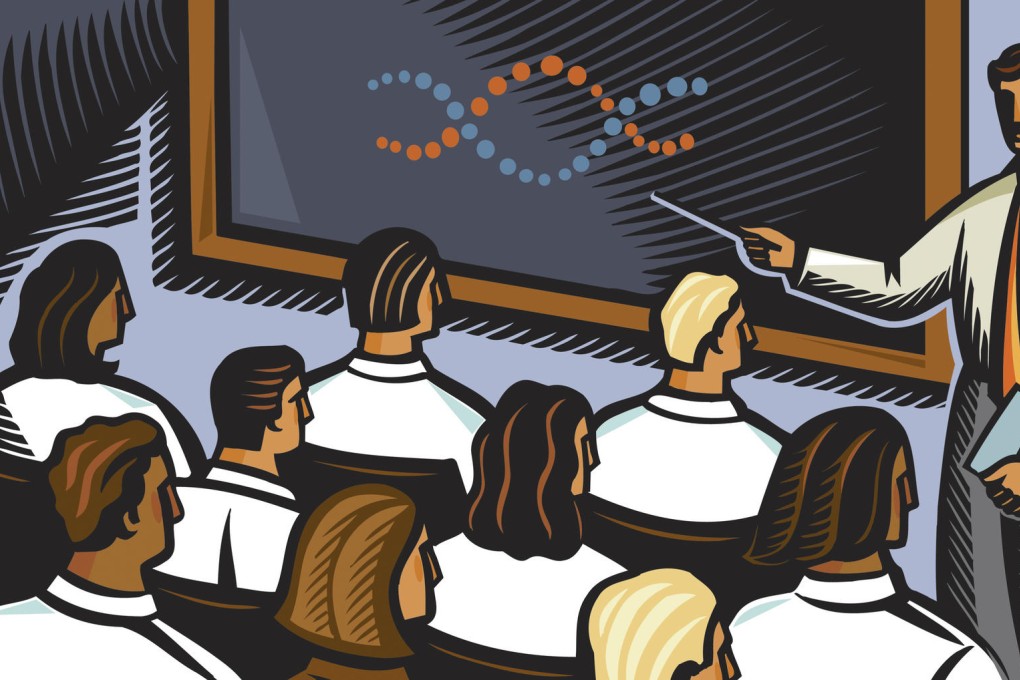Learning Curve: coursework the best way to determine top science students

Holmes and Watson are on a camping trip. In the middle of the night Holmes wakes up and gives Dr Watson a nudge. "Watson", he says, "look up in the sky and tell me what you see." "I see millions of stars, Holmes," says Watson. "And what do you conclude from that, Watson?"
Watson thinks for a moment. "Astronomically," he says, "it tells me that there are millions of galaxies and potentially billions of planets. Astrologically, I observe that Saturn is in Leo. Horologically, I deduce that the time is approximately a quarter past three. Meteorologically, I suspect that we will have a beautiful day tomorrow. Uh, what does it tell you, Holmes?"
"Watson, you idiot! Someone has stolen our tent."
It's a like reducing the teaching of performance in music to three standard scales
This illustrates shows the two things I need to teach my students - the necessity to think creatively for possible answers while learning to answer exam questions precisely.
Students beginning their IGCSE science courses in schools that offer them through Cambridge International Examination (CIE), will need to be even more precise.
CIE will no longer provide schools the choice of allowing students to undertake the coursework component that assesses students formatively in these examinations.
The final grade in science subjects is derived from three areas. First, a multiple-choice paper that contributes 20 per cent of the final grade and a theory paper that contributes another 60 per cent.
For the final 20 per cent of their grade, schools could choose between a practical test, an exam called the alternative to practical test, or assess students through coursework.
